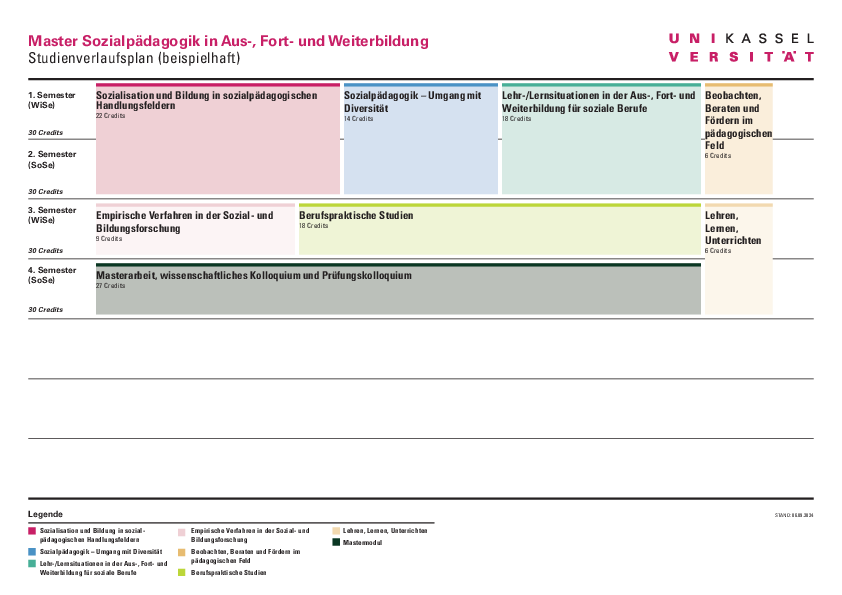Study structure
The content on this page was translated automatically.
The study program
The basic idea of this Master's degree course is to prepare students for qualified work at vocational schools and in further education and training institutions by combining theoretical, (school) pedagogical and (subject) didactic knowledge. This knowledge can be related to each other in a practical placement in the third semester. The internship semester enables students to first become active as participating observers, then to build on this and gain initial experience in teaching socio-educational content as lecturers.
In accordance with the program, the courses offered are, on the one hand, exclusively for students of the Master's program and, on the other hand, linked to other degree programs, both within and outside the department. For example, seminars are offered together with the department's internal Master's degree program "Diversity - Research - Social Work". Students will also attend modules from other institutes and departments within the educational and social science core curriculum, which is a central component of all teacher training programs at the University of Kassel. Building on a broad theoretical qualification in the first degree course successfully completed by the students, this subject-specific knowledge is to be deepened and specified in the Master's degree course.
Teaching staff in the degree program
The Institute of Social Work is responsible for the Master's degree course, meaning that many of the lecturers and researchers here are active in the Master's in Social Pedagogy in Education and Training and offer seminars depending on the research and teaching focus. In addition, lecturers with special expertise from the professional practice fields of vocational schools and further and adult education are engaged with the aim of linking theory and practice.
In seminars and lectures, which are offered across departments in the social and educational science core study program, there are representatives from a variety of relevant disciplines, such as (developmental) psychology, vocational education and school pedagogy.
